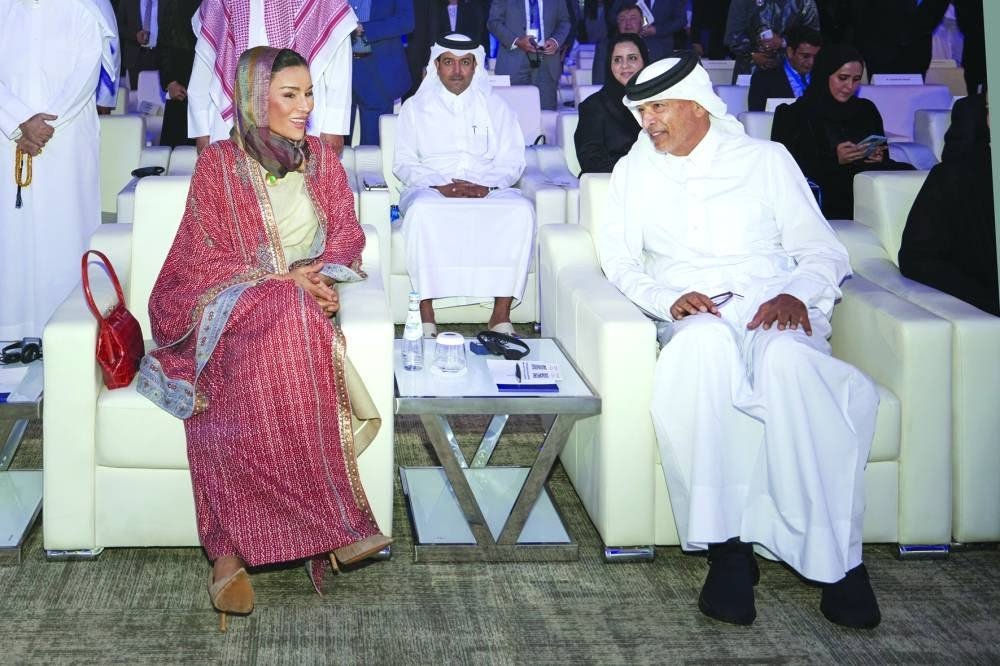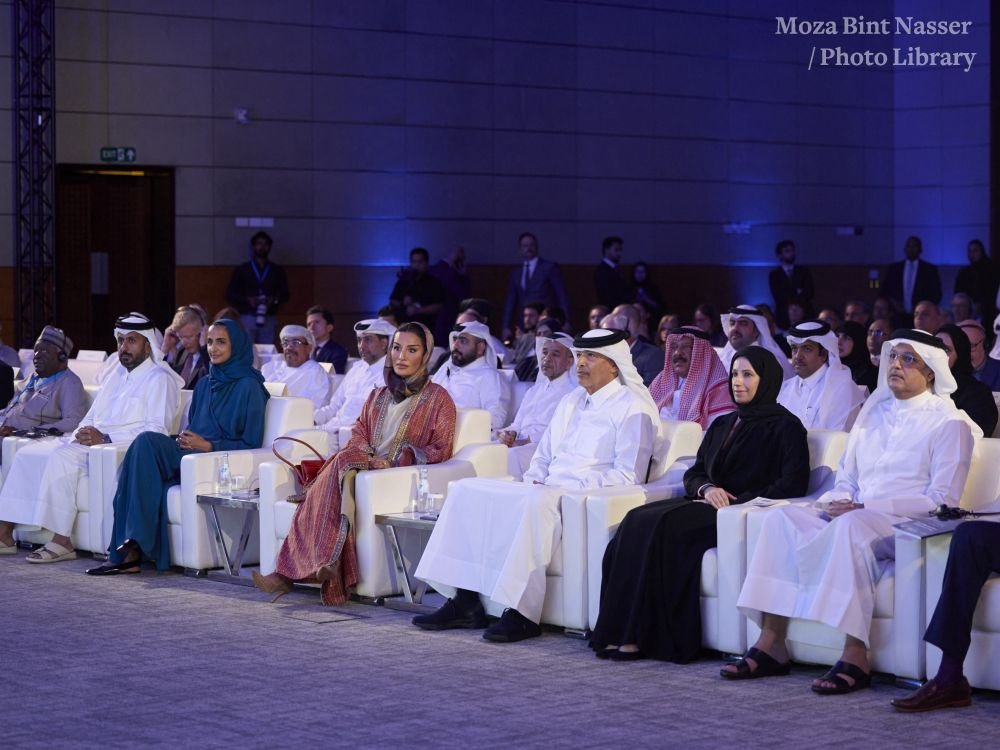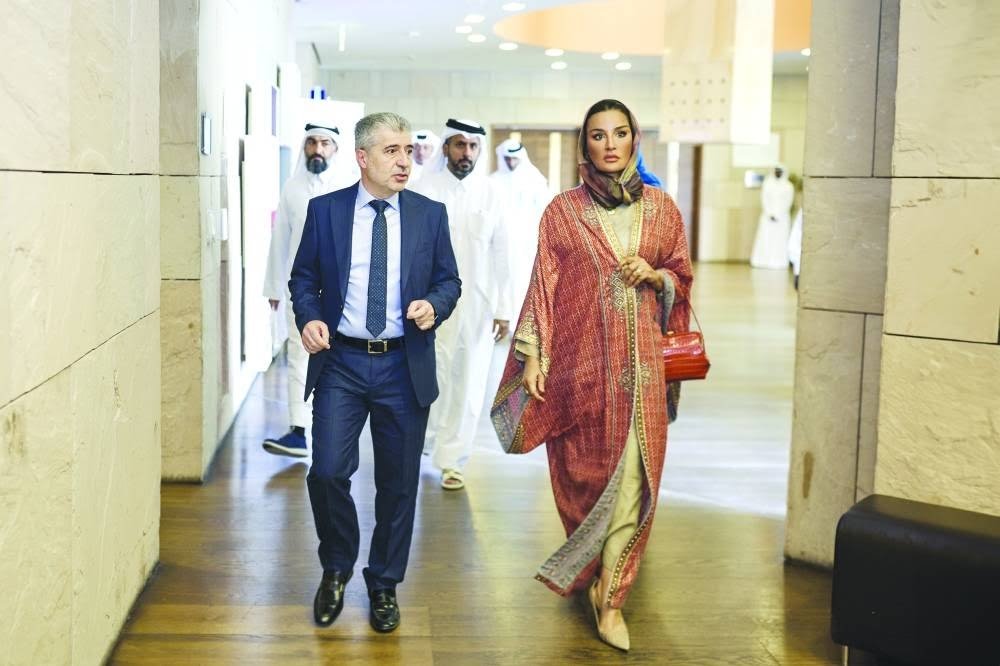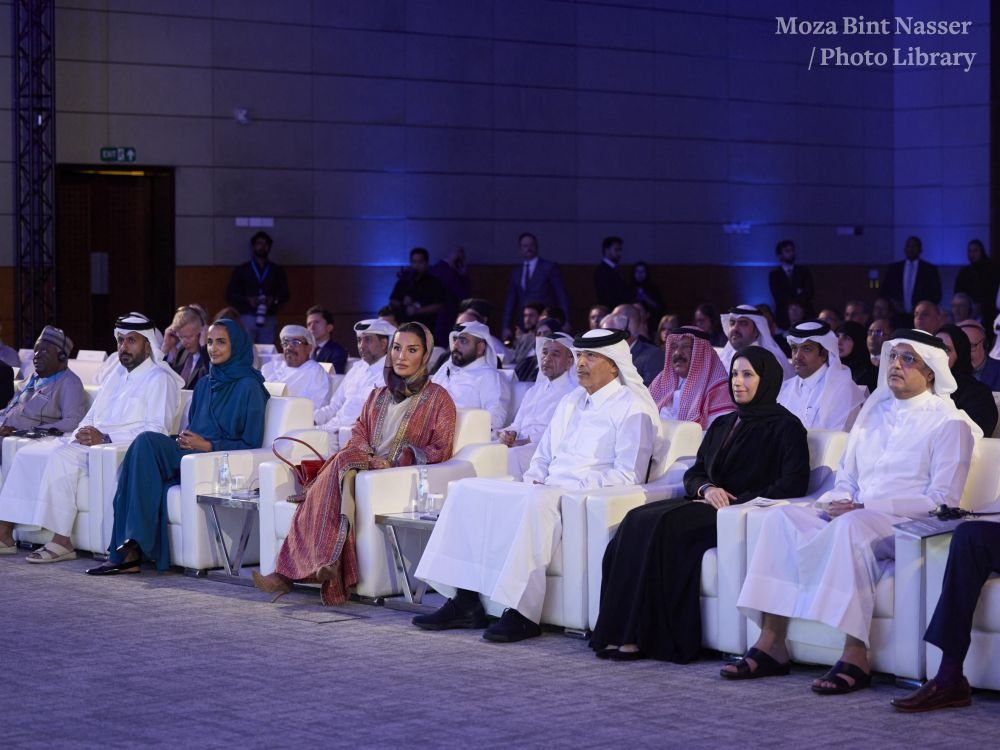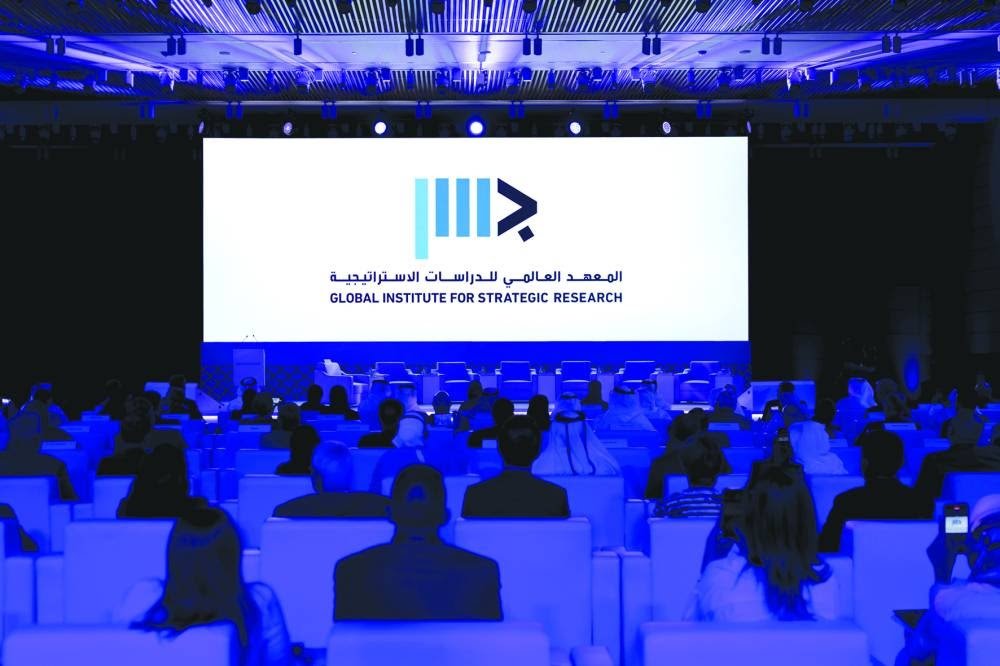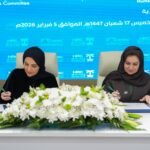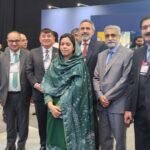Doha, Qatar, 01 Oct. 2023
The launch comprised a number of panels and roundtable sessions with thought leaders from around the world contributing to discussions on artificial intelligence, energy transition, as well as the challenge of sustaining peace in fragile states.
Senior experts from globally renowned think tanks and research centers, including the Center for Security and International Studies and the Stimson Center in Washington DC; the Overseas Development Institute and Chatham House in London; the Observer Research Foundation, New Delhi; as well as the Savannah Center, Abuja, traveled to Doha for the launch in a show of appreciation of the Institute, and in solidarity with its mission.
Dr. Ahmad M. Hasnah, President, HBKU said on the occasion that 'GISR reflects Qatar’s prominent place at a major geopolitical crossroads and commitment to positively impacting and shaping debates on a multitude of global challenges facing humanity today, be it climate change, energy, the development of new technologies, water scarcity, poverty, conflict, or displacement of people.
Through its research, thought leadership, and engagement activities, GISR aims to provide distinctly Arab and regional perspectives on the most pressing challenges facing Qatar, the Middle East and wider world today', Dr. Ahmad M. Hasnah added.
As an Acting Director, Dr Sultan Barakat, Professor in Public Policy at HBKU’s College of Public Policy, is leading the Institute through its early formation and will be guided by an international board of distinguished advisors with diverse backgrounds and extensive experience.
Reflecting on his role, Dr. Sultan Barakat, said: 'I am honored to be entrusted with this leading global initiative. Within the boundaries of HBKU and the QF exosystem, we have a unique concentration of scholarship, talent and innovation that will allow GISR to act as a catalyst to channel ideas and bridge the gap between research and policymaking'.
The day concluded with the launch of a joint GISR, Doha Forum, and Stimson Center report titled The Future of International Cooperation 2023.
Addressed to the 78th UN General Assembly, the report highlights how carefully designed, responsible initiatives in cyber-governance, including the regulation of AI, and reinvigorated peacebuilding can benefit people and nations and influence the outcomes of the Sustainable Development Goals.
Going forward, GISR will pursue to build a better understanding of the cultural, historic, political and other drivers of global challenges and shall seek to examine issues of global governance, advancement, peace and security in a holistic fashion.
To do so, strong coherence and collaboration between policymaking at the national, regional and international levels are required. 'We aim to create a safe environment where public policy debate can occur among scholars and policy makers both nationally and internationally.
We hope that in time we will be able to build a sufficient level of trust with policy makers to nurture a durable relationship that builds, sustains, and connects national with global policy,” said Dr. Barakat.
Biography
Sultan Barakat is a Professor in Public Policy at Qatar Foundation’s Hamad Bin Khalifa University and an Honorary Professor at the University of York. He is also the Founding Director of the newly established Global Institute for Strategic Research (GISR). In 2016, Professor Barakat founded the Center for Conflict and Humanitarian Studies at the Doha Institute for Graduate Studies and directed it until 2022. Previously, he served as the Director of Research at the Brookings Institution’s Doha Center 2014-2016. At the University of York, he founded and led the Post-war Reconstruction and Development Unit between 1993 and 2019.
Professor Barakat has pioneered the study of post-war reconstruction and state-building. He is the author/editor of many books and articles including Understanding Influence: The Use of Statebuilding Research in British Policy (2014); After the Conflict: Reconstruction and Development in the Aftermath of War (2nd edition, 2010); Reconstructing Post-Saddam Iraq (2008); and Reconstructing War-Torn Societies: Afghanistan (2004). His forthcoming book will examine Russia’s Approach to Post-war Reconstruction (2023).
With over 30 years of professional experience, advising on issues of conflict resolution, humanitarian response, statebuilding and post-conflict recovery and transition, his work has directly influenced UN, European and national governments’ policy. He has led major evaluations, peace negotiation processes and programming initiatives in Afghanistan, Bosnia-Herzegovina, Croatia, Egypt, Iraq, Jordan, Kosovo, Lebanon, Libya, Nepal, Palestine, Philippines (Mindanao), Somalia, Sri Lanka, Sudan (Darfur), Syria, Uganda (Moyo and Adjumani) and Yemen.
He is a Fellow of the Economists for Peace and Security and serves on the Advisory Board of the ODI-HPG.
He is a Senior Advisor to the Geneva-based, Principles for Peace initiative. Professor Barakat was a founding ‘Expert Panel Member’ of the Global Peace Index, where he served between 2008 and 2014 and a Commissioner on the Lancet Commission on Health in Conflict.

